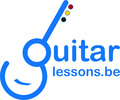|
5/1/2018 1 Comment Notes on acquiring motor skills...and some info about preparing realistically for a next gig.In this article:
The mysterious phenomenon of acquiring a new motor skill. Amateur players are gamblers. The gold standard of automation. If you have a gig in one or two month’s time, plan to use only skills you have already mastered. I suggest you don’t try to master a new skill for the gig. For example, if you have not mastered string bending yet, and your bends are out-of-tune and you get open string noise, don’t include bends in your guitar solo. Or, if you can play an 8th-note triplet pattern comfortably only up to 144bpm, don’t attempt to include it in a song which will be played at 168bpm. It seems obvious, but I've known many amateur players over-reach and then fail. It's almost a rite of passage. New motor skills are rarely acquired in a short period of time, no matter how intensively you practice. They develop ONLY when the THEY are ready, according to their own timeframe, regardless of your deadline of a gig. How new motor skills are acquired I have noticed motor skills often develop in this way: After a period of practicing the skill, then a period of not practicing it, the skill will suddenly magically materialize and you will have mastered it. Or, it may take several practice/rest iterations until you truly master the skill (depending on it’s difficulty compared to your current level.) I can’t remember where I heard this sentence, but it is so true: “Skills creep up on you and surprise you”. After hours of struggle, of frustrating practice with only small improvement, a skill will suddenly crystalize and you can play it well. Here is an example of this phenomenon from my drumming practice. (I’m a beginner drummer, and play gigs with Brussels-based student band, The Manneken Pistols.) I can drum a solid groove, but my drum fills are basic. Before some gigs, I have tried to incorporate a new fill. With one week to go before the gig, I scrap the fill. I decide not to play it at the gig. I can’t reliably execute it. I play a more basic fill instead; one I have already mastered and can play with good-timekeeping. A few weeks after the gig, at the next band practice, I’m delighted that I can suddenly play the new fill very well! It has ‘cooked’ and is now ready to be played the next gig. I’ve also witnessed similar with young guitar students who struggle with a new technique, then they go away for the summer holidays. That’s 7 weeks without a guitar. After 1 or 2 lessons in September, they suddenly master that ‘difficult’ technique. So, a new motor skill needs some downtime after a period of practice. Some mystical force is still working away while you don’t practice it. Perhaps you return to practicing that technique with less tension. You don’t have to strain muscles and brain so much now, due to your earlier practice. Amateur players are gamblers Many amateur players are gamblers. If they are unable to perform a song, solo or particular technique during their practice or band rehearsals, they still find it compelling to ‘gamble’ and attempt to play it at the next gig. They think to themselves, “I will get lucky on the night. Go for it!! He who dares wins. Fortune favors the bold!” They cross their fingers and hope positive thinking will help them to do something in front of 100 people that they are so far unable to do in their bedroom to an audience of zero. While the presence of an enthusiastic audience can elevate ones playing to a new level, it is never a good idea to expect motor skills to suddenly appear from nowhere at the next gig. Don’t count on it! If you are not producing that skill 99% of the time in practice or at band rehearsal, then there is a near zero chance that you will be able to pull it off well at the next gig. When it comes to motor skills, if you shoot for the moon, your will surely fall on your bum. Having said that, it is often necessary to fall on your bum a few times, to fail on stage, as embarrassing as that can be. Afterwards, your assessment of your capabilities will be improved. It will be more realistic. You will play better future gigs because of this experience. The gold standard of automation If you have not automated a particular motor skill yet, all your attention will be involved in executing it. You don’t have any concentration left to focus on other aspects of making music, such as performing, getting into a good groove, interacting with fellow musicians, etc…. The gold-standard of automation is to be able to hold a conversation while playing your guitar part. You are then rock solid! Mark Baxter. Brussels. May 2018 ©
1 Comment
|
AuthorMark Baxter, guitar teacher based in Brussels, Belgium. More than 800 students taught since late 80's. Instruments: guitar, uke, bass, drum kit, voice. [email protected] ArchivesCategories |
Search by typing & pressing enter

 RSS Feed
RSS Feed